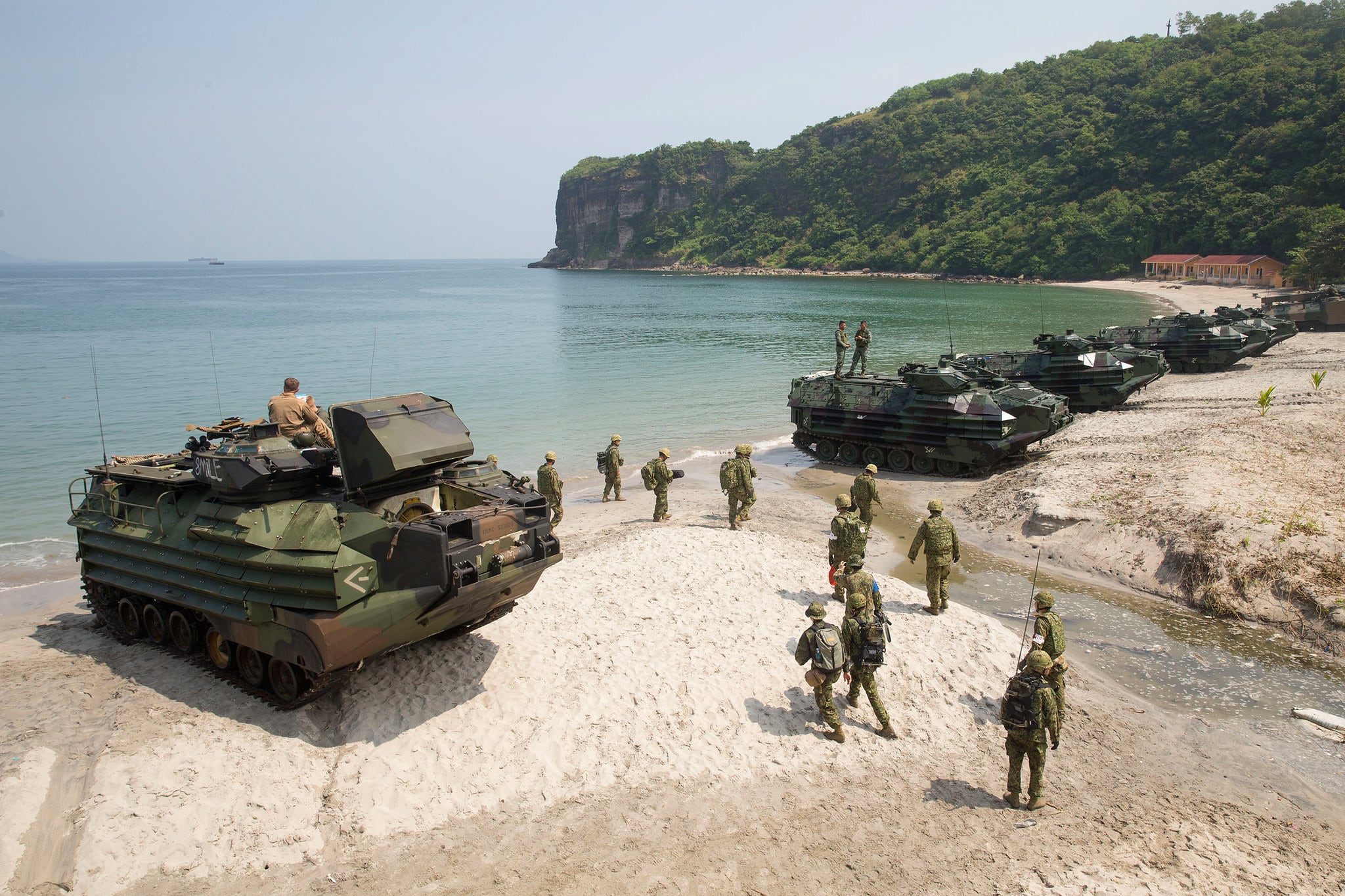On Feb. 21 Marine Commandant Gen. David Berger took to Twitter to lay out eight items he highlighted for “immediate action” in the Corps.
The tweets mentioned potential policy changes Berger was interested in, including increasing gender integration, recruiting smarter grunts and increasing maternity leave up to a full year.
However the changes only represent a fraction of Berger’s priorities, according to an internal memo floating on the internet and acquired and verified by Marine Corps Times.
The memo, sent by Berger to the assistant commandant of the Marine Corps Gen. Gary Thomas and dated Feb. 20, outlines 21 items the commandant wants to look into.
“Although I’m confident work is underway to implement some key elements" of the Commandant’s Planning Guidance, Berger said in the introduction of the memo, “I also assess that we now need an increased focus on certain topical areas.”
The 21 tasks include possibly raising the minimum Armed Forces Qualification Test score required to enlist in the Marine Corps, potential changes to the limited duty policy for pregnant Marines and proposed consolidation of Marine Corps Manpower and Reserve Affairs, according to the memo.
In the Twitter thread Berger called on the Corps to raise the minimum general technical score for 0311 riflemen to 100 out of 140. It currently is at 90.
He goes further in the memo, calling on the Corps to raise its minimum AFQT score required to enlist to 40.
The AFQT is the most important breakdown score on the Armed Services Vocational Aptitude Battery, or ASVAB, which is used to determine if a candidate is qualified to enlist.
Currently potential recruits are required to get a minimum score of 31 to enlist in the Marine Corps, Gunnery Sgt. Justin Kronenberg, a Marine Corps spokesman, told Marine Corps Times in a Friday email.
RELATED

Both the memo and the tweets show the commandant’s desire to improve life for new Marine parents.
One of the initial tweets Berger sent out on Feb. 21 called on the Corps to “identify the costs associated with implementing a new one-year paid maternity leave policy, along with the benefits and risks, and make a formal recommendation."
And, in his memo, the top Marine directed the Corps to review and change the limited duty policy that affects pregnant Marines.
The new policy would, require “medical professionals to provide expectant mothers a Limited Duty not specifying appropriate restrictions based on their condition of pregnancy.”
The order would also include "guidance limiting access to that information beyond the pregnant Marine’s officer-in-charge or commanding officer.”
The current Marine policy requires a Marine’s commander to determine appropriate assignments for the Marine “in consultation with the appropriate” health care provider.
The policy includes other limits on what pregnant Marines can be required to do including exemptions from exposure to chemical or toxic hazards and “standing at parade rest or attention for longer than 15 minutes.”
The commandant’s memo also requires Directed Comment Fitness Reports for Marines relieved or reassigned from a position “based on loss of confidence in ability to perform assigned tasks in billet."
The proposal seeks to end “soft reliefs,” which allow a Marine to be relieved or reassigned without receiving comment on it in their fitness report.
The memo also includes several minor organizational changes: consolidating all personnel related to manpower management under Marine Corps Manpower and Reserve Affairs, making all billets relating to “requirements development” come under the Deputy Commandant Combat Development and Integration, and moving all billets relating to programming and fiscal resourcing from across the Marine Corps to a position under the Deputy Commandant Programming and Resources.
The Marine Corps has not yet said how many Marines will be affected by the various consolidations.
“Any official policy decisions, changes or implementation plans will be published via appropriate orders and messages,” Maj. Eric Flanagan, a spokesman for the commandant, told Marine Corps Times Feb. 26.
In the memo Berger requested confirmation that each task has been planned, executed or completed by Feb. 29. He added an order for an in-person update on all the tasks outlined no later than 30 days after he sent the memo.




